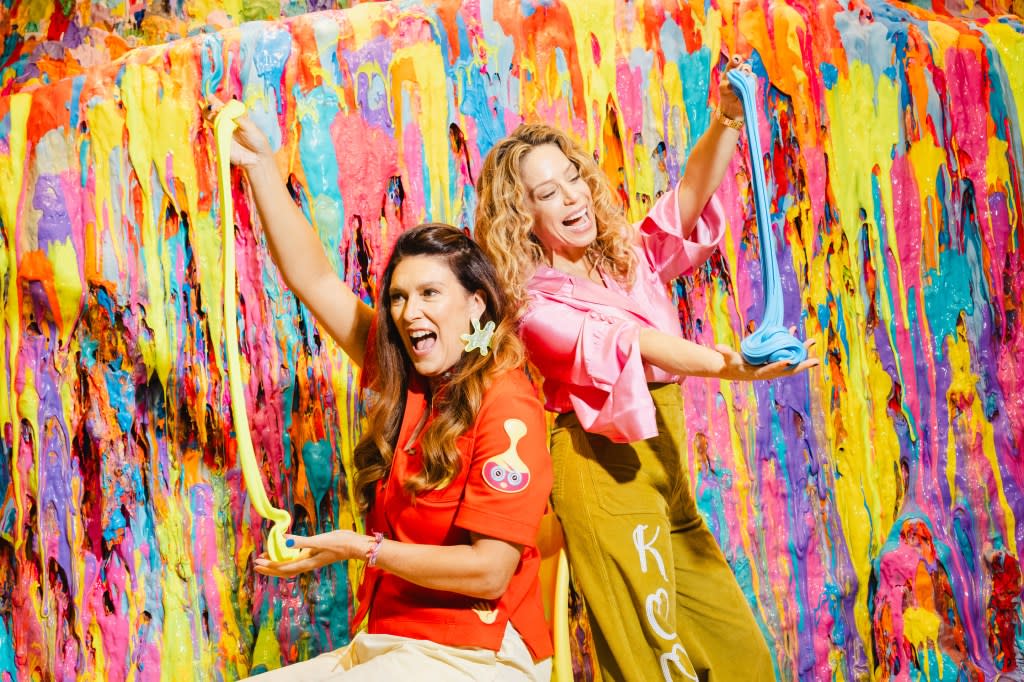How the founders of Sloomoo turned slime into a $30 million business: ‘People did think we were nuts’
Good morning, Broadsheet readers! Goldman Sachs's head of corporate board engagement connects companies with diverse leaders, Tracy Kasper resigned as president of the National Association of Realtors, and slime is a $30 million business for one startup. Have a wonderful Wednesday!
- Slime time. In 2018, Karen Robinovitz was visited by a friend and her friend's 10-year-old daughter. Robinovitz was in the middle of a deep depression after the death of her husband and the killing of her cousin in the Parkland shooting. She started playing with the slime her friend's daughter brought with her, and before she knew it, four hours had gone by. "I wasn't in any of my grief," she remembers. "All of my depression was gone."
Robinovitz became obsessed with slime, the squishy, glue-based product that has become popular among kids and others. She immediately told another friend, Sara Schiller, about her new obsession. Schiller had been through her own challenges and quickly latched onto slime's sensory benefits for neuro-diverse people. "All of a sudden, we found ourselves talking about slime every single day," Robinovitz says.
Robinovitz, who previously founded a talent agency for influencers, and Schiller, who'd cofounded a meeting room-sharing platform, decided to combine their expertises in marketing and real estate and go all-in on slime, debuting the Sloomoo Institute as a six-month popup in fall 2019 in New York.
The ticketed experiential space invites visitors to play with different kids of slime throughout its location, with guided expertise. The founders' original space closed early during the pandemic and while shut down, they raised a $5.8 million Series A. Today, Sloomoo has four locations in Atlanta, Chicago, Houston, and New York. In 2023, the company earned $30 million in revenue, Fortune is the first to report.

About 80% of that $30 million has come from ticket sales. Sloomoo has sold 1 million so far, for as much as $48 apiece in New York. The other 20% is from sales of its own slime. The company has about 400 employees (and aims to hire neuro-diverse people for at least 10% of that workforce).
Robinovitz and Schiller say that when they first told friends and colleagues they were opening a business devoted to slime, they got mixed reactions. "People did think we were nuts," Robinovitz recalls. But they think they tapped into a hunger for in-person experiences not made for Instagram. Sloomoo's locations can be noisy and chaotic. There are slime slingshots, a DIY bar to create your own combinations of textures and scents, and a Nickelodeon-style slime drop.
Sloomoo is targeting at least four new locations in 2024, pinpointing cities with a history of interest in experiential retail and high family disposable income. Long-term, the startup is considering growth through licensing internationally.
"It's that tactile sense that triggers dopamine," Schiller says of slime's universal appeal. "It connects your mind to your body. It literally makes you feel better."
Emma Hinchliffe
emma.hinchliffe@fortune.com
@_emmahinchliffe
The Broadsheet is Fortune's newsletter for and about the world's most powerful women. Today's edition was curated by Joseph Abrams. Subscribe here.
This story was originally featured on Fortune.com
